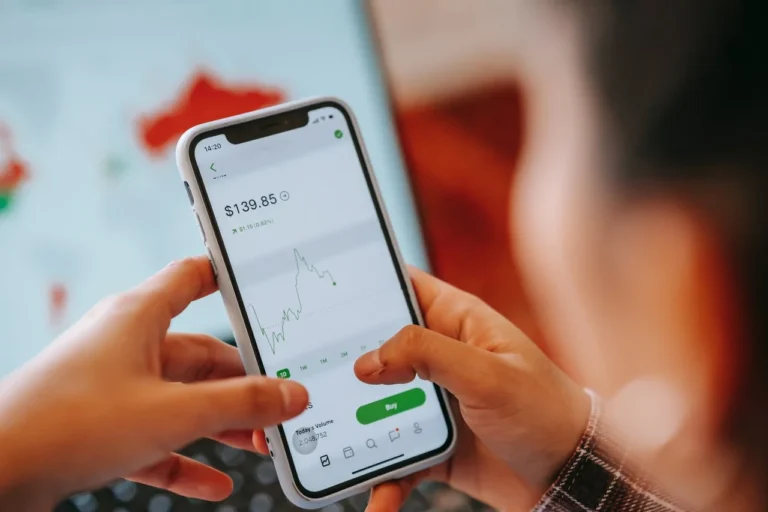Let’s be honest—managing business finances isn’t the most exciting part of running a business. But in 2025, mobile banking apps are making that job way easier.
You no longer need to walk into a bank or carry a laptop to check your balance, approve a payment, or send invoices. With just a smartphone, you can do it all on the go.
If you run a small business, having the right mobile banking app could save you time, money, and headaches. But which app is worth your attention this year?
In this post, we’ll break it down in simple English. No banking jargon. Just real tools that work for small business owners like you.
Why Mobile Banking Matters in 2025
You’ve probably noticed that most people hardly use cash anymore. From peer-to-peer payments to automated payroll, businesses are expected to move faster, stay transparent, and offer digital convenience. And guess what? Customers expect that from you, too.
Here’s how a good mobile banking app helps:
Keeps your business and personal funds separate
Tracks income and expenses automatically
Sends invoices and receives payments quickly
Offers instant transaction alerts for better control
Helps with budgeting and financial planning
Links easily with accounting software
In short: it’s your bank in your pocket. Now, let’s look at the best apps doing this right.
1. Lili – Best for Freelancers and Sole Proprietors
Platform: iOS, Android
Cost: Free basic plan; paid plan starts at $9/month
Why it stands out:
Lili is a mobile-first banking app built specifically for freelancers and solo entrepreneurs. It blends banking with tools like expense categorization and tax prep, so you don’t have to juggle five different apps.
Key Features:
No monthly fees or hidden charges (on basic plan)
Real-time expense tracking
Automatic tax savings
Create and send invoices in-app
Business debit card with cashback rewards
Best for:
Freelancers, consultants, and side hustlers who want everything in one app without a learning curve.
2. Relay – Best for Multi-User Access and Teams
Platform: iOS, Android, Web
Cost: Free; Relay Pro starts at $30/month
Why it stands out:
Relay offers business banking with multiple user access and detailed permissions—great if you work with a team or an accountant. It integrates easily with tools like QuickBooks and Xero.
Key Features:
Up to 20 checking accounts
Issue up to 50 debit cards for team members
Direct integrations with accounting software
Granular control over who sees what
No account fees or overdraft charges
Best for:
Small teams, partnerships, or companies with multiple departments needing shared access.
3. Novo – Best for Startups and Fast-Growing Businesses
Platform: iOS, Android
Cost: No monthly fees
Why it stands out:
Novo is sleek, simple, and packed with integrations. You can link it with Shopify, Stripe, Amazon, PayPal, and more. It also offers faster payouts, which is great for online sellers.
Key Features:
Easy invoicing
Reserves for budgeting (like savings pockets)
Instant notifications
No minimum balance
ACH transfers and check sending
Best for:
Ecommerce stores, tech startups, or any business that grows fast and relies on integrations.
4. Bluevine – Best for High-Yield Business Banking
Platform: iOS, Android, Web
Cost: Free business checking
Why it stands out:
Bluevine offers interest on your business checking account—something most banks don’t. You can earn up to 2.0% APY on balances up to $250,000.
Key Features:
Interest-bearing checking
2 free sub-accounts
Vendor and bill payments directly from app
Debit card with rewards
No NSF fees
Best for:
Business owners who want their money to grow passively while still being available for operations.
5. Mercury – Best for Tech-Driven Businesses and International Payments
Platform: iOS, Android, Web
Cost: Free basic; custom pricing for premium
Why it stands out:
Mercury focuses on startups and SaaS companies. It’s especially helpful for international businesses with remote teams or foreign clients.
Key Features:
Clean, modern interface
Access to Mercury Vault for treasury management
International wires and FX options
API access for automation
FDIC-insured through partner banks
Best for:
Tech founders, remote teams, or businesses dealing with international clients and contractors.
6. Square Banking – Best for Businesses Already Using Square
Platform: iOS, Android
Cost: No monthly fees
Why it stands out:
If you use Square for sales or payroll, Square Banking is a no-brainer. It connects your sales, bank, and payroll under one roof.
Key Features:
Real-time access to Square sales in your account
No fees for transfers or account maintenance
Business savings and loans within the app
Easy access to working capital
Best for:
Retail shops, salons, food vendors, or any business using Square POS.
What to Look For in a Mobile Banking App
Before you sign up for any app, check for these things. They make all the difference:
1. Fees and Charges
Are there monthly fees?
What about ATM charges, wire fees, or overdraft penalties?
2. User Interface
Is the app easy to navigate?
Does it feel intuitive for non-tech users?
3. Security
Is your account protected with biometric login?
Do they offer real-time fraud alerts or two-factor authentication?
4. Integration
Can you link it to your accounting software?
Does it work with tools like Stripe, PayPal, or Shopify?
5. Customer Support
Is help available when you need it?
Do they offer chat or call support?
How to Choose the Right App for Your Business
Here’s a simple decision process to help:
Freelancer with no team? → Try Lili
Managing multiple employees? → Use Relay
Running an online store? → Go with Novo or Square Banking
Want to earn interest? → Use Bluevine
Operate internationally? → Consider Mercury
Start by defining your main need: invoicing, savings, automation, or collaboration. Then match it to the app that solves that problem best.
Common Questions About Mobile Banking for Small Businesses
Q: Is it safe to use mobile banking apps for business?
Yes, most reputable apps use encryption, two-factor authentication, and partner with FDIC-insured banks. Just avoid sharing login details and use secure passwords.
Q: Can I use a personal bank account for my small business?
You can—but it’s not recommended. Keeping business funds separate helps with taxes, legal protection, and tracking growth.
Q: Do these apps support loans or credit lines?
Some do! Bluevine and Square offer business financing. Mercury and others may offer credit options based on usage.
Q: How fast can I set one up?
Most apps let you register in under 10 minutes using your phone. Just have your ID and business info ready.
Final Thoughts
Choosing the best mobile banking app for your small business in 2025 comes down to one thing: simplicity that works. You want an app that saves you time, helps you stay organized, and fits how your business runs.
Whether you’re sending invoices from your couch or managing payroll on a bus ride, these apps bring convenience and control to your fingertips. Test a few, explore the features, and choose the one that feels right for your business style.
And remember—your bank should work as hard as you do.


